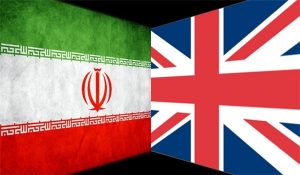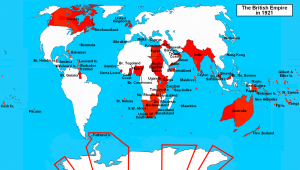The British Labour Party Uses Humanitarian Assistance as a Means of International Diplomacy In the Twenty-First Century
The phrase ‘special relationship’ was a tool of diplomacy for harnessing a rising inexperienced giant, America, to the achievement of British needs. Though the Americans, both in mode of thought and origins are substantially foreign, it could be said that their ruler are often Anglo-Saxon and share the political ideas of Britain and persuading them successfully to accept British point of view would mean the dominance of British views in all international matters. Bevin, the British Labour Foreign Secretary, was actively in favour of American involvement in the defence against any foreign aggression.
Although the members of the Commonwealth became responsible for their own defence, they still remained exposed to Communism’s influence, particularly in the face of the split between Russia and the West after the war. Moreover, Britain’s economic weakness gave her a handicap in keeping up with military, and especially atomic, weapon technology. Thus Britain had to come into alliance with the Americans both for economic and defensive reasons. As Clement Attlee, the British Labour Prime Minister has put it in his book ‘As it Happened’: “While this friction with Russia increased we naturally grew closer to the United States. This was helped by a change in the attitude of the Administration as they realised what the assumption of responsibility in world affairs entailed. Many Americans shed their old isolation and with it some of their long- seated prejudice against Britain as Soviet Russia. The two English – speaking countries began to realise their close co-operation was essential to world peace.”25 Thus, the decline of empire pointed to, and assisted in, a move to a closer relationship with the U.S.A., as never before seen in peacetime, moreover, a movement led by a socialist government on the grounds of protecting Britain’s national interest Britain thus managed to maintain her political and financial interests and prevented the Empire from a total disintegration.
The other half of the British Labour government was establishing the Modern Commonwealth. It was in the Sinhalese capital of Colombo that Ernest Bevin, the British Labour Foreign Secretary had his final achievement. It was in this, the first ever meeting of the Commonwealth Foreign Ministers, that the Development Act of 1940 became officially the Development Corporation and the British equivalent, of the Marshall Plan – the Colombo Plan was established. The meeting in Colombo took place in 1950. Therefore, the British Labour government managed to establish the Modern Commonwealth.
Since World War Two, until now that, is the beginning of the twenty-first century, it could be said that giving of aid has become part of international diplomacy, an approach begun by the British Labour government the beginning of the twenty-first century, uses humanitarian aids as a means of international diplomacy, as in the case of the Iraqi crisis of 2003-2005. The idea of giving of aid or humanitarian aids has essentially been based upon shrewd economic considerations, being aimed at retaining Britain’s trading and financial role in the Third world, and, as a result, maintaining Britain’s economic and political position as a world power.



